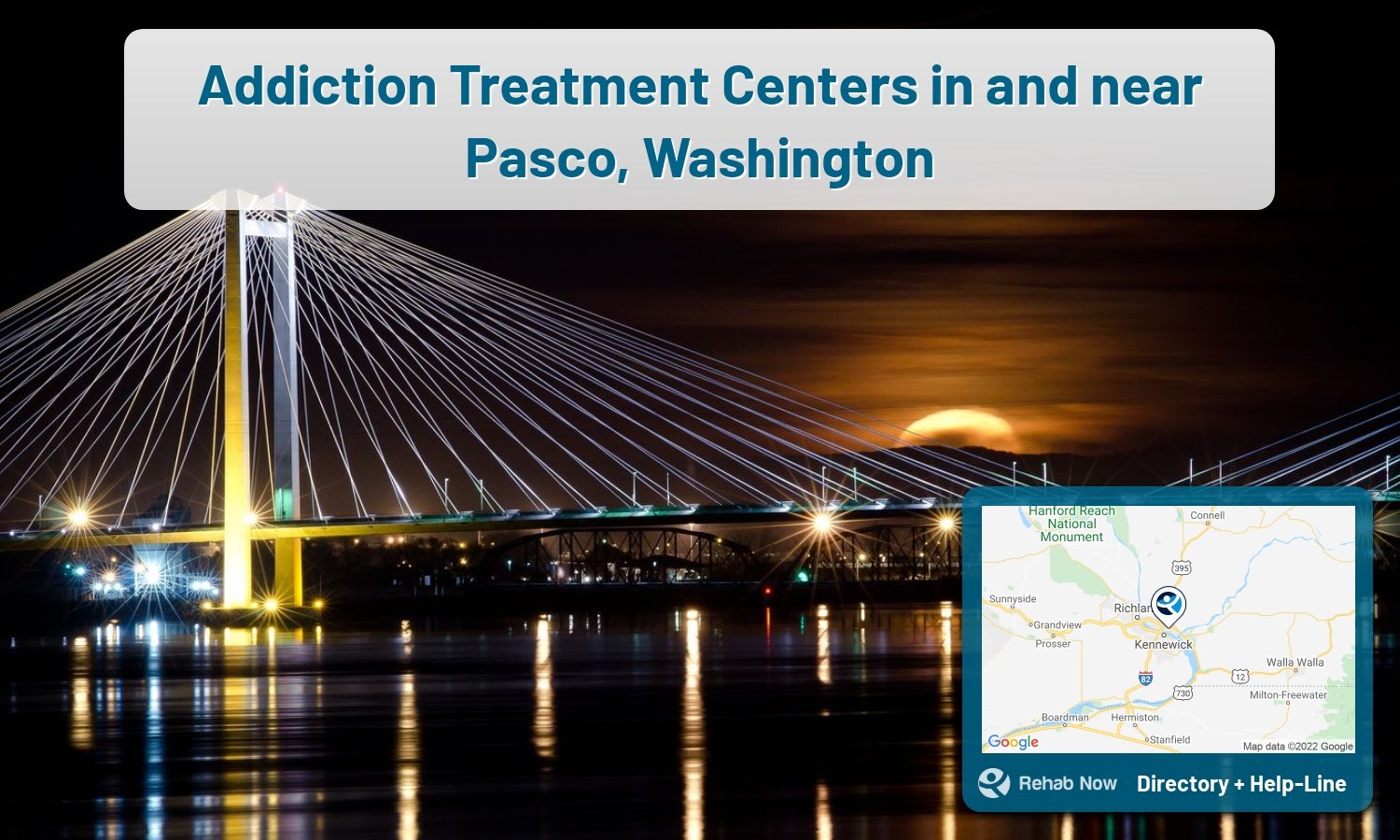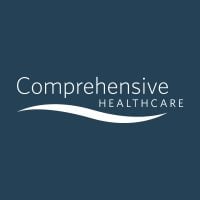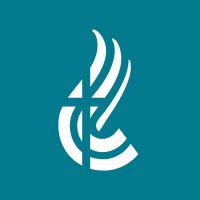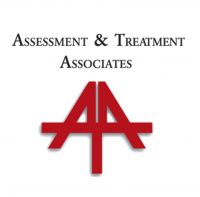Find An Addiction Rehab Center In Pasco, Washington Today
Pasco also struggles with high rates of crime and drug use. This likely has much to do with the city’s proximity to the Tri-Cities, which is a hub for methamphetamine production and distribution in Washington. In fact, the Tri-Cities was recently named one of the top 10 most dangerous places in the state for meth use.
Some of the most commonly abused drugs in Pasco include prescription drugs, heroin, methamphetamines, and cocaine. These drugs can be highly addictive and lead to serious health problems, including overdose. The city is the educational and economic center of Franklin County, and many young people move to Pasco to attend college. Unfortunately, this can also lead to more drug use and abuse as students look for ways to cope with the stress of school.
With a variety of opioid and alcohol rehabilitation services operating in Washington, there is opportunity for treatment and a better life in Pasco. Below we list all of the top addiction rehab services and centers, each of which have special features of their own.
One Call Makes This So Much Easier
We will help you find treatment based on your location, budget, and specific needs and help you get started safely.
Free + Confidential Consultation
Browse 6 Centers in Pasco, Washington
Tri Cities Community Health - Counseling Services is a SAMHSA-accredited, state-licensed Addiction Treatment Facility founded in 1981 in Pasco, WA which offers various levels of care for patients struggling with substance abuse, mental health, dual-diagnosis and opioid addiction, as well as aftercare support and accepts private health insurance.


Comprehensive Healthcare - Pasco is a JCAHO accredited Addiction Treatment Facility offering personalized care plans for individuals suffering from alcoholism, opioid addiction and other substance abuse-related mental health issues.

Lourdes Desert Hope is a comprehensive drug and alcohol treatment center in Pasco, WA that offers personalized treatment plans, including 12-Step Facilitation, CBT, DBT, Family Therapy, and Substance Use Counseling.
Assessment and Treatment Associates - Pasco offers individualized and evidence-based mental health and addiction treatment services with a team of licensed professionals, including medication-assisted treatment, detoxification, and residential programs for intensive needs.

Teen Challenge - Tri Cities Campus in Pasco, Washington offers residential care and treatment for substance abuse and addiction, utilizing both faith-based and evidence-based approaches to help clients overcome their addictions and develop the skills necessary for a successful addiction-free life.
Wilson House in Pasco, Washington offers integrated addiction care and treatment services, including residential substance abuse treatment programs, intensive outpatient programs, detoxification, individual and group therapy, and evidence-based programs such as DBT, CBT, and MI, with a holistic approach to help clients overcome addiction, build self-worth, and set a strong foundation for long-term recovery.
Information About Substance Abuse and Addiction in Pasco, WA
The city of Pasco has taken a number of steps to try to address its substance abuse and addiction problem. The city has a needle exchange program, a harm reduction center, and an addiction hotline. The city also offers a number of resources for those struggling with substance abuse and addiction.
Additionally, Pasco has many detox facilities and rehab centers. These facilities can provide the help you need to get clean and stay sober.

What types of treatment are available in Pasco, Washington?
There are many different types of addiction treatment available in Pasco, Washington. Some common options include inpatient and outpatient treatment, 12-step programs, and detox.
Inpatient treatment involves staying at a treatment facility for a predetermined amount of time, while outpatient treatment allows you to continue living at home while attending regular therapy sessions.
12-step programs, such as Alcoholics Anonymous, are based on the belief that addiction is a disease that can be overcome with the help of a higher power. These programs typically involve attending meetings and working through the 12 steps with a sponsor.
Detox is usually the first step in addiction treatment. This process involves allowing the body to rid itself of the substances it is dependent on. Detox can be done on an outpatient or inpatient basis.
Drug and Alcohol Statistics in Pasco, Washington
According to the 2019 National Survey on Drug Use and Health (NSDUH), 8.78% of adults aged 18 or older reported using illicit drugs in the past month. Individuals aged 18 to 25 had the highest rate of drug use at 16.63%.
Adolescents in Pasco also struggle with drug and alcohol abuse. The 2019 Youth Risk Behavior Survey found that 11% of high school students had used alcohol in the past 30 days, and 5% had used drugs. In addition, 3% of students reported binge drinking, and 1% reported using illicit drugs other than marijuana.
- 59% of drug overdose deaths in Pasco involved opioids (including heroin and prescription painkillers).
- 30% of drivers involved in fatal car accidents tested positive for drugs/alcohol.
- 25% of high school students reported being offered, sold, or given an illegal drug on school property.
- 44% of residents who abuse drugs in Pasco are also addicted to alcohol.
Additional Treatment Centers in Washington
Washington's substance use, abuse, and addiction rates have followed the trends of the rest of the over the past years. Methamphetamine abuse is the biggest threat to Washington. Heroin-related overdoses increased by almost 450% from 2006 to 2016. 20% of all annual deaths in Washington are somehow drug and/or alcohol-related. Drugs are widely abused in Washington because they are easily trafficked in and out of the state.
Still haven't found the right recovery center? Browse nearby Washington cities.
- Monroe, WA (175.5 mi.)
- Raymond, WA (222.9 mi.)
- University Place, WA (177.5 mi.)
- Nespelem, WA (133.3 mi.)
- Lynnwood, WA (186.9 mi.)
- Port Orchard, WA (189.8 mi.)
- Dayton, WA (54.1 mi.)
- Hanford, WA (27.4 mi.)
- Bremerton, WA (190.2 mi.)
- Hoquiam, WA (233.0 mi.)
- Darrington, WA (182.2 mi.)
- Medical Lake, WA (113.8 mi.)
- Seattle, WA (149)
- Spokane, WA (90)
- Tacoma, WA (55)
- Vancouver, WA (49)
- Yakima, WA (45)
- Bellevue, WA (38)
- Everett, WA (34)
- Olympia, WA (25)
Is there a cure for drug addiction?
There is no cure for drug addiction. However, addiction is a treatable disease. With treatment, people with addiction can learn to manage their disorder and live a productive life.
There are many treatment options available for addiction. Treatment typically involves some combination of detoxification, counseling, and therapy. Treatment plans are individualized to meet the needs of each person.
Treatment for drug addiction typically begins with detoxification, which helps the individual to break the physical dependence on the drug. After detox, the person will typically undergo counseling and therapy to address the underlying causes of the addiction. In some cases, medication may also be prescribed in order to help with withdrawal symptoms or to reduce the risk of relapse.
Dual diagnosis and co-occurring disorders
When a person suffers from both a mental health disorder and a substance abuse problem, it is known as a dual diagnosis or co-occurring disorder. These disorders can interact with and complicate each other, making it difficult to diagnose and treat both conditions.
Dual diagnosis often goes hand-in-hand with chronic relapse, as each disorder can trigger the other. For example, someone with depression may turn to alcohol to self-medicate, only to find that their drinking leads to deeper depression. Similarly, someone with an addiction may develop anxiety or paranoia as a result of their substance abuse.
Treating dual diagnosis requires a comprehensive approach that addresses both disorders simultaneously. Without treatment, dual diagnosis can be a debilitating and even deadly condition.
Different approaches to addiction treatment
There are many different approaches to addiction treatment. The most important thing is to find a treatment plan that works for you.
One approach to addiction treatment is 12-step recovery programs. These programs follow a set of 12 steps that emphasize admitting powerlessness over addiction, seeking help from a higher power, and making amends for past wrongs.
Another approach to addiction treatment is medication-assisted treatment (MAT). This approach combines behavioral therapy with medications to treat both the mental and physical aspects of addiction. MAT is often used to treat opioid addiction, as it can help to reduce cravings and withdrawal symptoms.
Other approaches to addiction treatment include cognitive-behavioral therapy, which helps to change negative thinking and behavior patterns; and contingency management, which uses rewards to encourage abstinence from drugs.
How likely is it that I will relapse after completing addiction treatment?
The risk of relapse is always present for people in recovery from addiction. However, there are many things that you can do to reduce the likelihood of relapse.
One way to reduce the risk of relapse is to participate in a continuing care program after completing treatment. Continuing care programs typically involve weekly meetings with a counselor or therapist. These meetings can help to keep you accountable and provide support during difficult times.
Another way to reduce the risk of relapse is to participate in self-help or support groups such as Alcoholics Anonymous or Narcotics Anonymous. These groups provide peer support and can be a valuable resource during recovery.
Finally, it is important to maintain healthy lifestyle habits. Eating a healthy diet, exercising regularly, and getting enough sleep can help to reduce stress and improve your overall well-being. These healthy habits can also make it easier to resist the temptation to abuse drugs or alcohol.
How to choose an addiction treatment center
There are many factors to consider when choosing an addiction treatment center. Here are a few things to keep in mind:
- Location: Treatment centers are located in all 50 states. A rural or urban setting may be a preference.
- Reputation: It is important to research a treatment center’s reputation. Be sure to read reviews from past and present clients.
- Treatment approach: Different treatment centers use different approaches to treatment. It is important to find a center that uses an approach that you are comfortable with.
- Accreditation: Treatment centers that are accredited by the Joint Commission on Accreditation of Healthcare Organizations (JCAHO) have undergone a rigorous review process and meet high standards of quality.
Other factors that you may want to consider include the amenities, such as whether the center has a gym or swimming pool; the staff, including the ratio of counselors to clients; and the length of stay, which can range from 28 days to 90 days.
View options, availability, treatment methods, and more, for drug rehab and alcohol treatment in Pasco, Washington (888) 674-0062.




